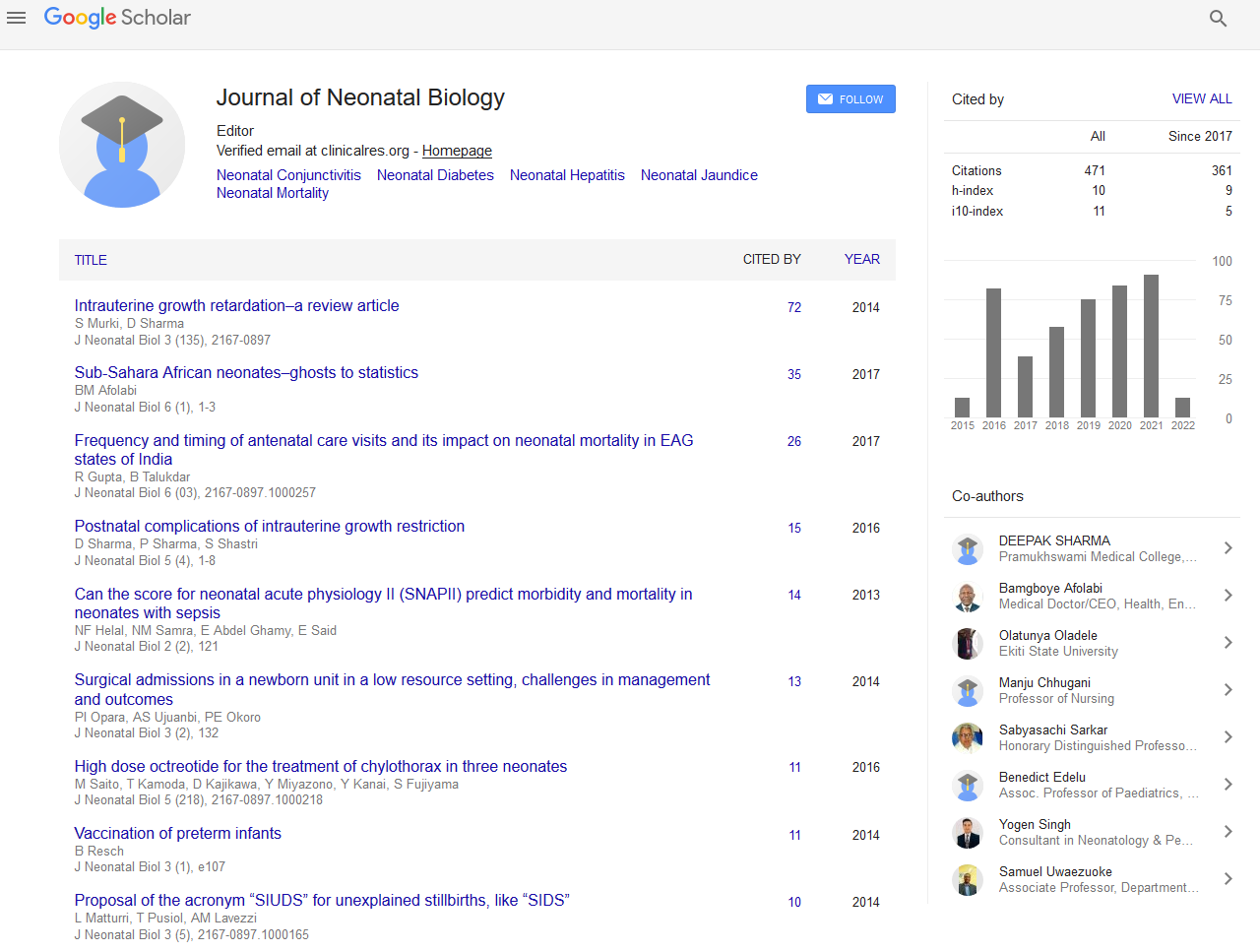PMC/PubMed Indexed Articles
Indexed In
- Genamics JournalSeek
- RefSeek
- Hamdard University
- EBSCO A-Z
- OCLC- WorldCat
- Publons
- Geneva Foundation for Medical Education and Research
- Euro Pub
- Google Scholar
Useful Links
Share This Page
Journal Flyer

Open Access Journals
- Agri and Aquaculture
- Biochemistry
- Bioinformatics & Systems Biology
- Business & Management
- Chemistry
- Clinical Sciences
- Engineering
- Food & Nutrition
- General Science
- Genetics & Molecular Biology
- Immunology & Microbiology
- Medical Sciences
- Neuroscience & Psychology
- Nursing & Health Care
- Pharmaceutical Sciences
Abstract
Translational Developmental Toxicology: Prospects for Protective Therapeutic Obstetrical and Neonatal Interventions
Claude Hughes, Michael Waters, Iyabo Obasanjo and David Allen
Contemporary translational biomedical research strives to move from discoveries in models (in silico, in vitro and in vivo) into human clinical trials to expeditiously develop specific therapeutics. Translational toxicology must similarly strive to identify applicable therapeutics that can safely and effectively mitigate potential harm from exposures. Since human exposures to chemicals, physical agents and social factors are inevitable, the human fetus is subject to effects that can have lifelong consequences. In order to apply the translational concept to developmental toxicology, we are guided by the modest number of established and accepted obstetrical therapeutics used primarily for fetal benefit. These established or potential therapeutic obstetrical interventions suggest that early steps into testing or implementing developmental translational toxicology therapies during the in utero and early neonatal period will likely derive from Generally-Recognized-As-Safe (GRAS) options. If we are to translate environmental health discoveries into safe and effective interventions, we must assert and characterize valid, applicable therapies such as GRAS treatments and eventually “ethical pharmaceuticals” for the protective care of these highly vulnerable young patients. We can create a safe and efficacious environmental health portfolio of interventional options to improve human health that include both reduction/avoidance of exposure and specific preventative/mitigative/restorative therapeutics.


